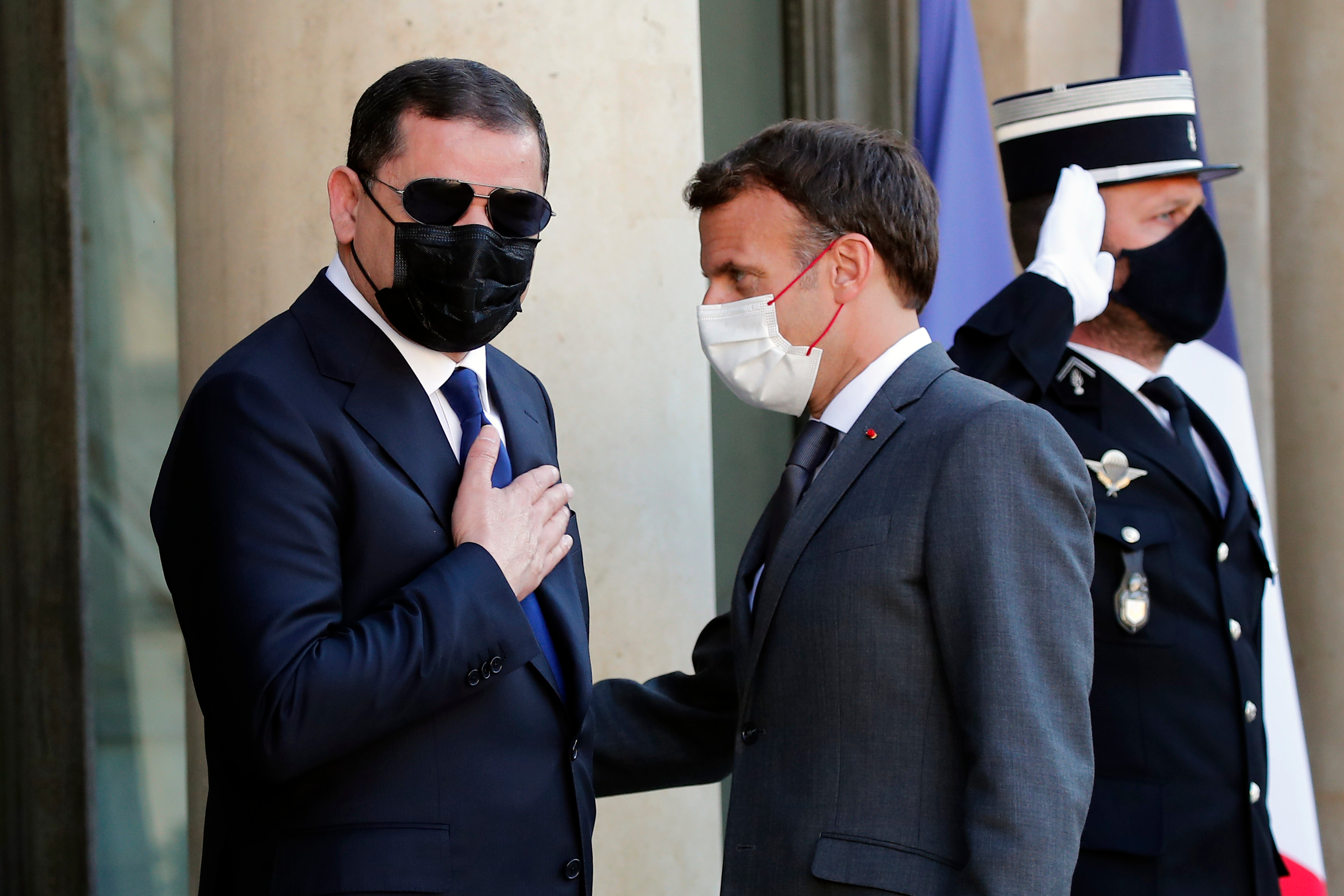Germany, UN to host conference on Libya in Berlin on June 23
Germany and the United Nations plan to host a conference on Libya this month in Berlin

Your support helps us to tell the story
From reproductive rights to climate change to Big Tech, The Independent is on the ground when the story is developing. Whether it's investigating the financials of Elon Musk's pro-Trump PAC or producing our latest documentary, 'The A Word', which shines a light on the American women fighting for reproductive rights, we know how important it is to parse out the facts from the messaging.
At such a critical moment in US history, we need reporters on the ground. Your donation allows us to keep sending journalists to speak to both sides of the story.
The Independent is trusted by Americans across the entire political spectrum. And unlike many other quality news outlets, we choose not to lock Americans out of our reporting and analysis with paywalls. We believe quality journalism should be available to everyone, paid for by those who can afford it.
Your support makes all the difference.Germany and the United Nations plan to host a conference on Libya this month in Berlin a gathering that aims to bring together powers with interests in the North African country and its transitional government.
The agenda for the June 23 conference announced Tuesday includes discussions about preparations for elections in December and the withdrawal of foreign forces from Libya.
French President Emmanuel Macron met with Libyan Prime Minister Abdul Hamid Dbeibah in Paris on Tuesday for bilateral talks focusing on ways to support a political transition and greater stability in the country.
“We must put an end to all foreign interference, which involves the withdrawal of all foreign mercenaries' forces on Libyan soil: the Russians, the Turkish, the Syrian mercenaries and all the others,” Macron said.
Dbeibah praised France for its support and vowed to focus “effective and intense action” to “organize free, transparent and fair elections” at the end of the year.
The Berlin meeting will take place at the level of foreign ministers and follows up on a January 2020 conference where leaders agreed to respect an arms embargo for Libya and to push the North African nation's warring parties to reach a full cease-fire. Germany has tried to act as an intermediary.
The countries that have been involved in the process include the five permanent members of the U.N. Security Council, along with Italy, Turkey and the United Arab Emirates.
The Berlin conference will mark the first time that the Libyan transitional government is represented at such an event, the German Foreign Ministry said in a statement.
It will “take stock of progress” since the first Berlin gathering and discuss “the next steps needed for a sustainable stabilization,” the ministry statement said.
“The main focus will be on preparations for the national elections scheduled for Dec. 24 and on the withdrawal of foreign troops and mercenaries from Libya as agreed in the cease-fire,” the statement said. “In addition, steps towards the creation of unified Libyan security forces will be discussed.”
Libya has been mired in chaos since a NATO-backed uprising toppled and later killed longtime dictator Moammar Gadhafi in 2011. Afterwards, the oil-rich country was long divided between a U.N.-supported government in the capital, Tripoli, and rival authorities based in the country’s east, each backed by armed groups and foreign governments.
In April 2019, east-based commander Khalifa Hifter and his forces, backed by Egypt and the United Arab Emirates, launched an offensive to try and capture Tripoli. Hifter's 14-month campaign collapsed after Turkey stepped up its military support of the U.N.-backed government with hundreds of troops and thousands of Syrian mercenaries.
An October cease-fire agreement that included a demand that all foreign fighters and mercenaries leave Libya within 90 days led to a deal on the December elections and a transitional government that took office in February.
“It has been a very long process in which we often weren't sure ourselves whether the aims we set could be achieved,” German Foreign Minister Heiko Maas told reporters in Berlin, speaking of the agreement.
“But after the developments in recent months, we are cautiously optimistic,” Maas said.
_________
AP Writer Sylvie Corbet in Paris contributed to the story.